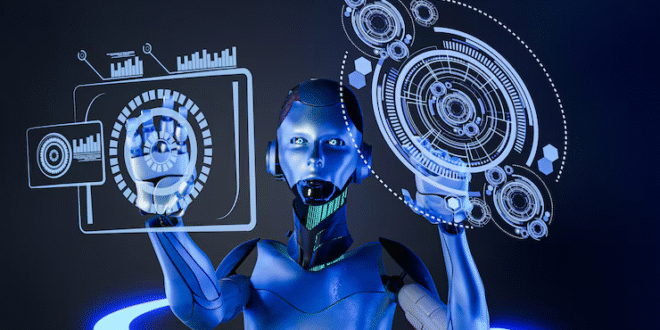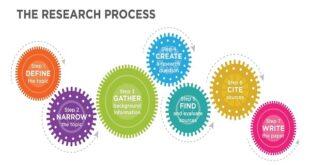The future of AI in development is not just a forecast, it’s a rapidly unfolding reality. From writing code to automating tests and improving deployment, artificial intelligence is transforming every corner of software development. In this comprehensive guide, we will explore how AI is shaping the future of development, the ethical concerns developers must be aware of, challenges in AI and ML integration, and the benefits AI brings to modern software workflows.
Table of Contents
- The Role of AI in Modern Software Development
- Ethical AI in Software Development
- Challenges of AI and ML in Software
- Benefits of Machine Learning in Software Testing
- Top AI Tools for Software Engineers
- AI Training Requirements for Developers
- Future Trends in AI for Development
- A Developer’s Action Plan
- Conclusion
The Role of AI in Modern Software Development
AI is revolutionizing software development through automation and intelligent assistance. Leading platforms like GitHub Copilot and Tabnine are now helping developers write and review code faster. According to Business Insider, companies like Meta are even integrating third-party AI systems, such as Anthropic’s Claude, to assist with internal software engineering.
AI is being used in the following areas:
- Code Generation: Automating repetitive coding tasks
- Bug Detection: Identifying potential issues in real time
- Testing Automation: Creating smart test scripts
- DevOps: Monitoring pipelines and infrastructure
AI doesn’t replace developers—it augments their capabilities, making them faster and more efficient.
Ethical AI in Software Development
As AI becomes more deeply integrated into software workflows, ethical considerations must take center stage. Ethical AI in software means ensuring that the systems we create are fair, transparent, and secure.
Key Principles of Ethical AI:
- Transparency: AI decisions should be understandable.
- Fairness: Avoiding biases in algorithms.
- Accountability: Clear responsibility for AI actions.
- Privacy: Ensuring data protection and consent.
Many organizations now follow frameworks like the EU AI Act and IEEE’s Ethics Guidelines for Trustworthy AI, which set global standards for ethical implementation.
Challenges of AI and ML in Software
While the benefits are huge, developers face significant AI and ML challenges in software development:
a. Data Dependency
AI systems require vast and diverse datasets to function properly. Limited or biased data can produce inaccurate models.
b. Black Box Models
Some AI systems operate as “black boxes” with opaque decision-making, making debugging and auditing difficult.
c. Model Drift
Over time, AI models may lose accuracy due to changes in real-world data, requiring regular updates.
d. Security Risks
As highlighted by TechTarget, AI systems are vulnerable to adversarial attacks if not secured properly.
e. Integration Complexity
Blending AI seamlessly into CI/CD pipelines can be a logistical and technical challenge.
Benefits of Machine Learning in Software Testing
Machine learning in software testing is helping teams achieve better coverage, reduce costs, and detect issues faster.
Key Benefits:
- Automatic Test Case Generation: AI analyzes past bugs and changes to create relevant tests.
- Smart Prioritization: Identifies areas most likely to contain bugs.
- Predictive Analytics: Suggests improvements before issues arise.
- Faster Regression Testing: AI reduces the time spent on repeated testing cycles.
Tools like Applitools and Functionize offer AI-powered visual testing and test case generation that help QA teams scale efficiently.
Top AI Tools for Software Engineers
AI tools are rapidly becoming essential in the developer toolkit. Here are some top picks:
- GitHub Copilot – Autocomplete for code using OpenAI’s Codex
- Tabnine – Predictive code suggestions based on team data
- Cursor – Context-aware development assistant for enterprise
- Amazon CodeWhisperer – Secure coding assistance with real-time suggestions
- DeepCode – Static analysis and code review powered by AI
As outlined by Forbes, these tools save time, reduce bugs, and streamline code quality.
AI Training Requirements for Developers
With AI changing the development landscape, developers must adapt with new skill sets.
Must-Have Skills for Developers:
- Prompt Engineering: Crafting queries for AI assistants
- Data Literacy: Cleaning and preparing training data
- MLOps: Managing AI models in production environments
- Security Awareness: Understanding how to secure AI systems
- Ethical Frameworks: Applying responsible AI practices
Platforms like Coursera and Udacity now offer AI-specific courses tailored to software developers.
Future Trends in AI for Development
The future holds several exciting developments:
- Autonomous Agents: Tools that complete multi-step programming tasks
- AI Observability: Monitoring AI performance continuously
- Low-Code Platforms: Letting non-developers build AI tools
- Explainable AI (XAI): Making black-box models more transparent
- Synthetic Data: Creating artificial datasets to improve training
Gartner predicts that by 2026, 80% of software projects will include AI components. This means every team must prepare for hybrid development models where AI co-authors, tests, and deploys software.
A Developer’s Action Plan
To prepare for the AI-powered future, development teams should:
- Integrate AI gradually – Start with tools like Copilot or AI-powered testing
- Create AI guidelines – Document ethical and technical protocols
- Upskill continuously – Take online courses in ML, prompt engineering, and MLOps
- Collaborate with AI – Don’t replace; augment your team’s capabilities
- Measure ROI – Monitor code quality, bug rates, and delivery time pre/post AI integration
Conclusion
AI in software development is not just an enhancement—it’s becoming a necessity. The future of AI in development involves greater autonomy, faster workflows, and more intelligent systems. But with great power comes the need for greater responsibility.
By embracing ethical practices, adopting powerful tools, and committing to ongoing learning, developers can thrive in this next chapter of the software revolution.
AI won’t replace developers. Developers who use AI will replace those who don’t.
For more information and new you can visit WikiTechno
 Wiki Techno Bestes Tech-News-Magazin-Portal
Wiki Techno Bestes Tech-News-Magazin-Portal

